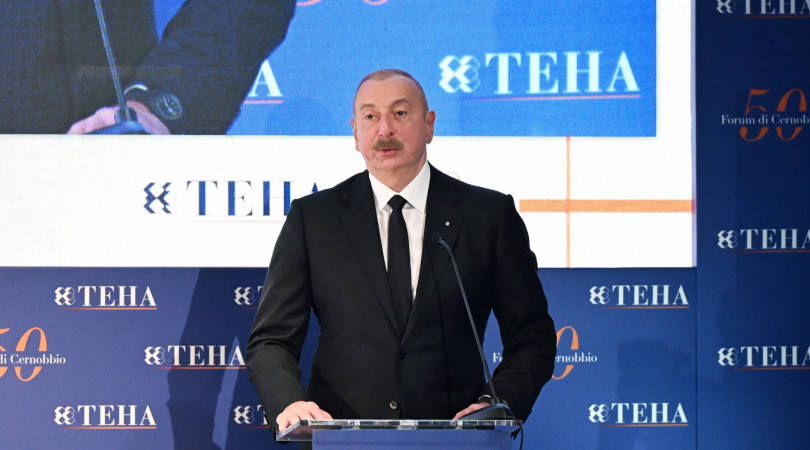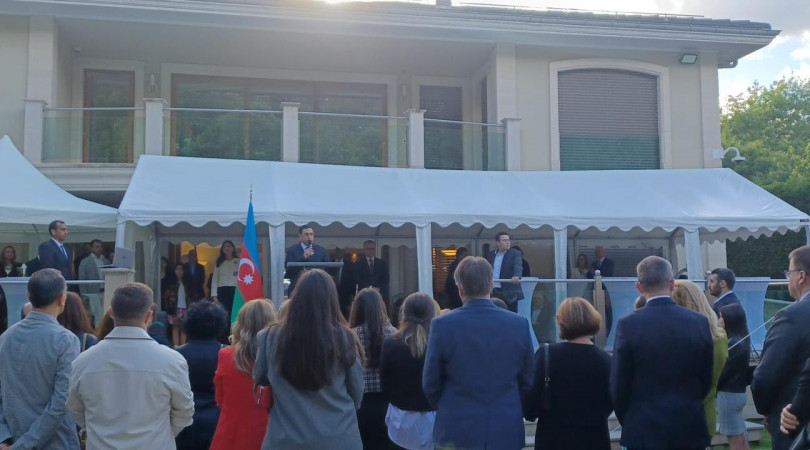Minister for Foreign Affairs of the Republic of Azerbaijan, Jeyhun Bayramov addressed letter to the Secretary-General, in connection with the continued irresponsible actions and provocative statements of the Republic of Armenia
I am writing to convey profound concerns of my Government over continued irresponsible actions and provocative statements of Armenia against the territorial integrity of the Republic of Azerbaijan, which pose existential challenges to the already shaky negotiation process under the Minsk Group of the Organization for Security and Cooperation in Europe (OSCE) for the settlement of the Armenia- Azerbaijan Nagorno-Karabakh conflict.
On 12 July, Azerbaijan yet another time became subject to an armed attack by Armenia along the Armenia-Azerbaijan international border. During four consecutive days, Armenia subjected Azerbaijani military positions and nearby residential areas to heavy artillery shelling. As a result, Azerbaijan suffered civilian and military casualties, and serious damage was inflicted upon civilian infrastructure, including private houses and hospitals.
The attack by Armenia from 12 to 16 July was by no means a spontaneous military incident, but yet another deliberate act of aggression, being the latest manifestation of illegal use of force by Armenia against the Republic of Azerbaijan, and pursued the goal of seizing new part of Azerbaijan. This reckless military assault was planned well in advance on the basis of aggressive military doctrine, which according to the Minister of Defence of Armenia envisages “preemptive strikes aiming at creating more favourable security situation” and “new war for new territories”.
Acting upon such an aggressive military doctrine, the 12 July attack was deliberately carried out along the international border on the basis of several military and political calculations. First of all, the border was seen by Armenia as the most favourable place to conduct a “surprise strike” on Azerbaijan, in light of the decision by Azerbaijan to gradually demilitarize the non-occupied part of the border and put it under control of the State Border Service. Apparently, Armenia made an attempt, albeit unsuccessful, to exploit this goodwill gesture of Azerbaijan. Secondly, the attack was carried out in the region through which critical energy and transport infrastructure of Azerbaijan runs, thus threatening the energy resources supplies from Azerbaijan. Furthermore, the attack along the border pursued the aim of creating a pretext for a possible intervention of the Collective Security Treaty Organization, of which Armenia is a member.
Yet, all these calculations of Armenia proved to be wrong. The attack was successfully repulsed, and the threat to civilian Azerbaijani settlements and critical infrastructure was effectively neutralized by adequate countermeasures by the armed forces of Azerbaijan. But apparently it did not stop Armenia from exploring further possibilities for its destabilizing purposes.
Thus, having failed on the battlefield, the Armenian leadership resorted to campaign of terror and intimidation against Azerbaijanis abroad through radical Armenian diaspora organizations. In different parts of the world, Armenian ultra-nationalist extremist groups, wearing signs of notorious Armenian terror organizations, such as the Armenian Secret Army for the Liberation of Armenia (ASALA), attacked and vandalized the premises of Azerbaijani diplomatic missions, attempted to obstruct peaceful and pre-authorized demonstrations of Azerbaijani community members, and physically and verbally assaulted individual Azerbaijanis, including diplomats and journalists. Along with massive physical violence, the Internet as well as social media was extensively abused to disseminate hatred and intimidation, including open death threats against Azerbaijanis.
All these destabilizing actions of Armenia are accompanied by extremely provocative rhetoric by the Armenian senior leadership, which cannot but seriously undermine the settlement process, rendering the negotiations absolutely meaningless.
Most recently, the Prime Minister of Armenia has publicly confessed that the strategic goal for Armenia in the settlement process of the Armenia-Azerbaijan Nagorno-Karabakh conflict is to “safeguard the results of the war”. The Armenian leadership publicly conditioned the resumption of negotiations, which is paused due to its own faults, with unrealistic and illegitimate claims pursuing notorious purpose of imposing a fait accompli and annexation of currently occupied territories of Azerbaijan.
This is diametrically opposite to the spirit and logic of negotiations under the OSCE Minsk Group. It should be reminded once again that the task of the negotiation process, as defined by relevant OSCE decisions and endorsed by four resolutions of the Security Council (822 (1993), 853 (1993), 874 (1993) and 884 (1993)), is to eliminate, through de-occupation of the territories of Azerbaijan, the consequences of the war unleashed by Armenia. Azerbaijan has been participating in this process for almost three decades with that purpose, aiming at restoring its territorial integrity through peaceful means. This commitment of Azerbaijan to peace is without prejudice to its rights under the Charter of the United Nations and international law, in general, and thus should not be taken for granted and further abused.
It is within this context that the Azerbaijani side appeals to the international community to firmly stand behind the values, norms and principles underpinning civilized international order by condemning the destabilizing actions and inflammatory statements by Armenia blatantly violating the sovereignty and territorial integrity of Azerbaijan and to urge Armenia to comply with the principles of inter-State relations and to fulfil in good faith its obligations under the Charter, the Helsinki Final Act and the relevant resolutions of the Security Council of 1993. This is crucially important in order to stop Armenia from undermining the remaining perspectives for a peaceful settlement of the conflict. In this regard, we count on your solidarity and effective support in defence of the sovereignty and territorial integrity of the Republic of Azerbaijan.
(Signed) Jeyhun Bayramov


















